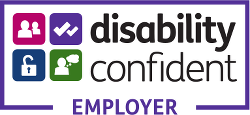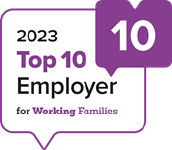Job summary
- Main area
- Asisstant practitioner
- Grade
- NHS AfC: Band 3
- Contract
- Permanent
- Hours
- Part time - 21 hours per week (Flexible on week days and hours within 8am - 6pm work hours. Maximum 7.5 hours a day)
- Job ref
- 395-EC927-24
- Employer
- NELFT NHS Foundation Trust
- Employer type
- NHS
- Site
- Great Oaks clinic ( +various)
- Town
- Basildon, Brentwood, Thurrock
- Salary
- £25,329 - £26,958 pro rata
- Salary period
- Yearly
- Closing
- 30/12/2024 23:59
Employer heading

Assistant Practitioner: ADHD and Autism Assessment
NHS AfC: Band 3
Joining #TeamNELFT means you’ll become part of a welcoming and supportive working environment. We’re CQC rated Good, and we want you to join us on the journey towards an Outstanding rating. NELFT has sites across North East London, Essex, Kent and Medway. We provide community and mental healthcare services to adults and children within these areas.
The Trust has award winning equality and diversity initiatives and staff health and wellbeing activities. We invest heavily in your development, because when you are valued and supported, we provide the best care to our patients. We are a Level 3 Disability Confident Leader, have been featured in the Working Families Top 10 Employers benchmark for three consecutive years, and we have achieved a Carers UK Level 1 Accreditation. Along with our staff networks and training opportunities, we work hard to embed a just and compassionate culture here at NELFT.
Find out more about NELFT careers and what makes our Trust a great place to work, in this video
Job overview
The post holder will be responsible for supporting the assessment and management of a defined group of children and young people exhibiting characteristics that are symptomatic of ASD and/or ADHD or have been recently diagnosed .
This would suit someone who has carried out a similar role or who has worked with neurodivergent young people in another capacity - for example education - wanting to move into specialist healthcare.
Main duties of the job
Be responsible for own work and that of others within a broad framework.
· Contribute to the Austim and ADHD assessment process at an appropriate clinical level. This can include carrying out QbTests, observations of patients, information gathering from parents.
· Contributing to advice-giving to patients and families at appropriate clinical level. This will include signposting and giving general advice.
· Contribute to the collection of medical measurements for young people considering or taking Medication for ADHD. For example, blood pressure, height and weight
· Form part of an interdependent multi-disciplinary team
Working for our organisation
Probationary Period
This post will be subject to a probationary period. Internal applicants are exempt from the probationary period (unless you are an internal applicant currently part way through a probationary period or currently a bank member of staff).
Starting with NELFT
NELFT place a great deal of importance on new starters being properly welcomed and inducted into the Trust. All new starters will join the Trust on the first Monday of each month and will undertake a comprehensive induction of up to two weeks which will include mandatory training, systems training and the allocation of equipment. As part of the process new starters will have the opportunity to also meet the executive team, senior managers and attend a number of drop in sessions focussing in engagement, health and wellbeing and key processes. The induction will be held at our head office in Rainham, Essex.
High Cost Area Supplement - Outer London
This post also attracts payment for High Cost Area Supplement of 15% of the basic salary (with a minimum of £4,313 to a maximum of £5,436 p.a. pro rata for part time).
High Cost Area Supplement - Fringe
This post also attracts payment for High Cost Area Supplement of 5% of the basic salary (with a minimum of £1,192 to a maximum of £2,011 p.a. pro rata for part time).
Detailed job description and main responsibilities
Clinical Skills
· Work alone at times in the clinical environment and in the community, under the direction of the registered member of the multi-disciplinary team and always with access to support and supervision.
- · Modify intervention as needed depending on risk assessment, the situation and own skills and knowledge. Refer back to the registered member of the multi-disciplinary team for support and advice ensuring that they are aware of any modifications made.
- · Inform patients of facts using empathy, understanding and reassurance, adjusting communication style to the needs of the patient. This includes promoting and upholding the rights and diversity of individuals.
- · Deal calmly and professionally with direct/indirect exposure to angry or distressed patients or sensitive information about services and staff performance (e.g. complaints and serious incidents).
- · Develop knowledge of clinical skills, using competency frameworks as appropriate to the setting, and to patients on the caseload.
- · Understand and deliver care in line with NELFT Safeguarding Policies (Adults and Children) and the Whistle Blowing Policy. Discuss issues of safeguarding with staff and ensure appropriate advice is sought and received when required.
- · Work collaboratively with other services, which may include children’s services. Ensure robust communication and liaisons where relevant information, relating to a child or young person (0-19), is obtained during the course of their work.
- · Order equipment & resources as agreed or directed
- · Understand and apply the eligibility criteria for services and adhere to organisational standards of practice.
- · Reflect on and evaluate your own values, priorities, interests and effectiveness.
- · Promote health, safety and security in the work setting.
- · Understand how to enable, move and position individuals in accordance with their plan of care.
- · Demonstrate, and instruct, on the use of equipment to ensure safety.
- · Report any incident/untoward incidents/near misses to self, patients or carers to the manager.
- · Minimise the risk of spreading infection by cleaning, disinfecting and maintaining environments. Perform hand hygiene and use personal protective equipment to prevent the spread of infection.
- · Recognise the need for further advice, guidance and support as appropriate
- · Administering clinical assessments such as Qbtest and obsevrations that can be analysed by qualified members of the MDT.
- · Administering medical measurements such as height weight and blood pressure that can be analysed by qualified members of the MDT
- Leadership
- · Be responsible for a delegated patient group following initial assessment and advice by a registered member of the multi-disciplinary team
- · Undertake duties identified in each client’s individual care plan which the post holder is trained, competent and confident to perform.
- · Monitor patient’s progress, taking account of their environment and adjust own clinical interventions accordingly.
- · Follow the treatment plan and feedback on the patient’s progress and highlight need for re-assessment when needed.
- · Implement, evaluate and modify support as directed. Administration
- · Organise own day to day activity in liaison with the line manager and supervisor, including co-ordinating patient appointments, liaising with patients, carers and educational services.
- · Exercise good personal time management, punctuality and consistent reliable attendance.
- · Manage frequent interruptions to respond to requests from other staff.
- · Analyse basic patient information to make informed decisions.
- · Maintain accurate and complete patient records.
- · Keep up to date with relevant Health and Social Care developments.
- · Participate in the planning, reviewing and development of services.
- · Contribute to research and development being carried out, collect information and evidence as requested. This includes maintenance and dissemination of information (written and electronic).
- · Undertake and assess risk assessments providing feedback to the team as necessary e.g. in relation to lone working. Manage risk effectively within various settings.
- · Maintain stocks of equipment and ensure safe, competent and efficient use of equipment which is well maintained. Report any defects.
Communication
- · Form professional relationships with patients and carers and communicate with them in a way that respects their views, autonomy and culture.
- · Communicate with other staff and agencies as appropriate in written and oral format to report on patient performance and progress.
- · Contribute to multi-disciplinary meetings and case conferences, helping to ensure that there is an integrated approach, which benefits the patient’s overall care and discharge plans.
- · Ensure that service users engage effectively with the agreed care plan and access appropriate services.
- · Constructively manage barriers to effective communication.
- · Assist in obtaining valid patient consent and work within a legal framework with patients who lack capacity to consent to treatment.
- · Instruct and guide individuals/groups of patients in therapeutic programmes and activities.
- · Report effectively to the relevant team on patients’ performance and progress.
- · Attend meetings and feedback relevant information.
- Training
- · Participate in the Trusts Performance Appraisal scheme and be responsible for own personal CPD (continuous personal development) by identifying own areas of development, and undertaking relevant activities to meet objectives.
- · Keep a record of own training and development.
- · Share knowledge and experiences both formally and informally.
- · Take a flexible approach in supporting colleagues during times of workload pressures.
- · Participate in the training, induction and teaching of related skills and techniques to other support staff.
- · Actively participate in managerial and clinical supervision.
Person specification
qualifiction
Essential criteria
- NVQ level 2 or equivalent standard of literacy and numeracy
Desirable criteria
- NVQ level 3
- Bachelor degree in relevant subject
experience
Essential criteria
- An interest and understanding of neurodivergence in children and young people and a commitment to neuro-affirming practice Experience of working with Neurodivergent young people 6-19 Experience of working with children and young people who have experienced trauma, mental health difficulties or adverse childhood experiences Relevant experience in a healthcare setting and base level of theoretic knowledge Ability to work as part of a team
knowledge
Essential criteria
- Knowledge and understanding of neuro-affirming practice
knowledge
Essential criteria
- Computer Literate – this includes general IT Skills, use of Microsoft programmes and electronic patient records Ability to plan and organise own workload and time – including managing and monitoring waiting lists Ability to work as an autonomous practitioner – this may include lone working or with colleagues in different locations as required, good communication skills
Applicant requirements
This post is subject to the Rehabilitation of Offenders Act 1974 (Exceptions) Order 1975 (Amendment) (England and Wales) Order 2020 and it will be necessary for a submission for Disclosure to be made to the Disclosure and Barring Service.
Application numbers
If you require any additional support during the application process please contact [email protected]. We are happy to make reasonable adjustments to support you throughout the recruitment journey.
Documents to download
Further details / informal visits contact
- Name
- Louise Pearce
- Job title
- Autism and ADHD assessment pathway lead
- Email address
- [email protected]
- Telephone number
- 07957 934222
- Additional information
alternative contact :
Joanne Collinson
Autism and ADHD assessment pathway lead
List jobs with NELFT NHS Foundation Trust in Allied Health Professions or all sectors







